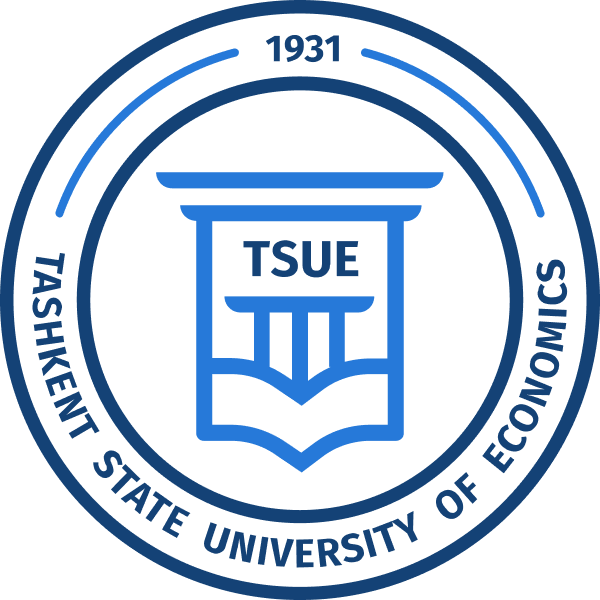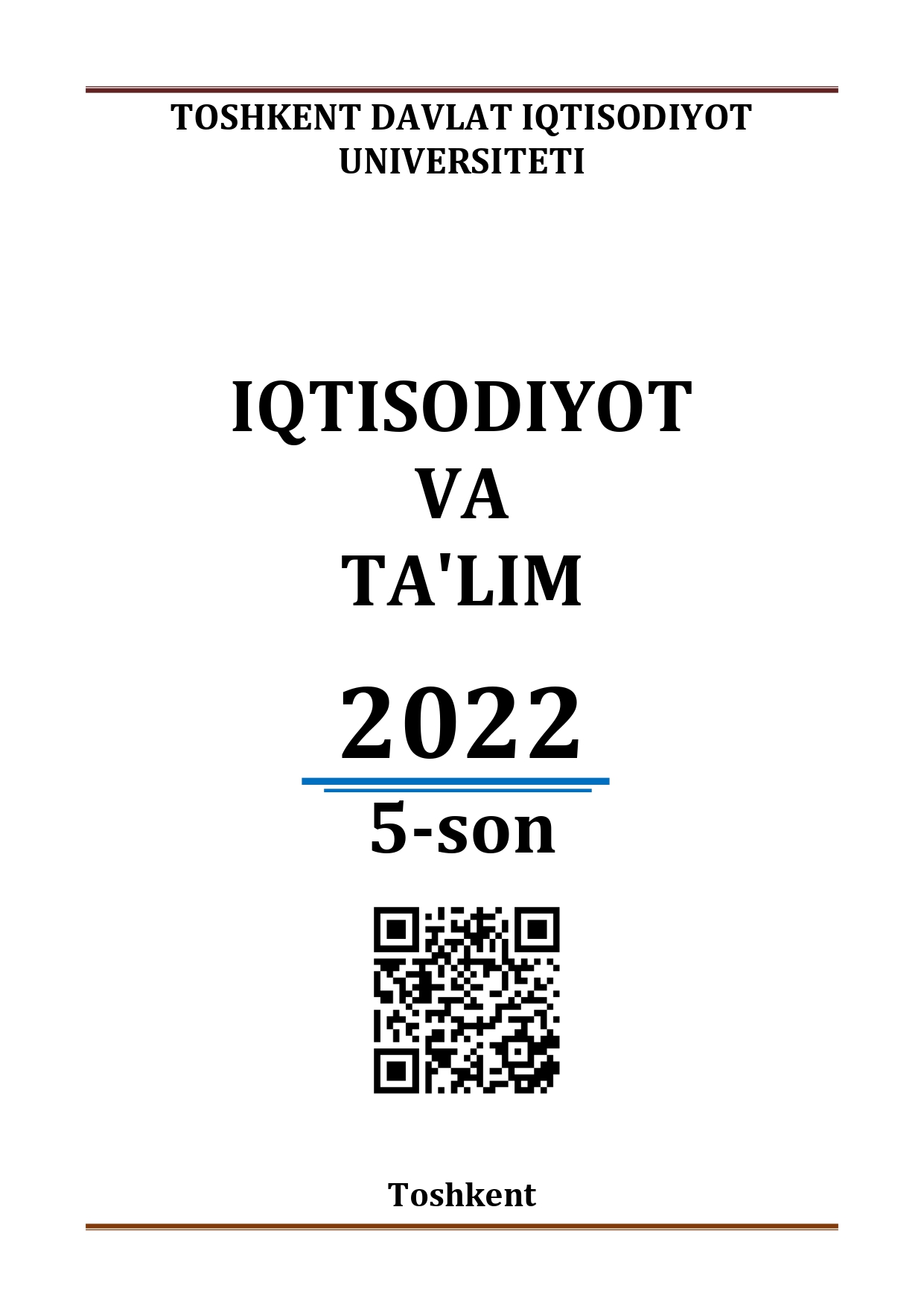Abstrak
Sanoat tarmoqlarining rivojlanishi ekologik muammolarning keskin oshib ketishiga sabab bo‘ldi. Natijada XX asrning oxirgi o‘n yilligida barqaror rivojlanish konsepsiyasi olimlar tomonidan ishlab chiqildi. Ushbu konsepsiyaning asosiy maqsadi iqtisodiy farovonlikka tabiiy resusrlarni asrab-avaylagan holda hamda ijtimoiy to‘qnashuvlarsiz erishishni nazarda tutadi. Turizm sanoati boshqa sanoat tarmoqlariga nisbatan resurs tejamkor tarmoq sifatida qaralgan bo‘lsada, bugungi kunda turizm industiyasining ekologik ta’siri yaqqol ko‘zga tashlanmoqda. Aynan shu sababli ko‘pgina olimlar tomonidan turizmni ekologik, ijtimoiy zarar keltirmagan holda iqtisodiy foyda olib kelishi kerak deb hisoblashmoqda. Ularning tadqiqotlari natijasida fanga “barqaror turizm” atamasi kiritildi. Ushbu maqolada “barqaror turizm” so‘zining paydo bo‘lishidan boshlab turli mamalakat olimlarining barqaror turizmga berilgan ilmiy yondashuvlari tahlil qilingan hamda muallif tomonidan barqaror turizm atamasiga mualliflik ta’rifi berilgan
Bibliografik manbalar
UNWTO. International tourism highlights. 2019 Edition, Madrid, Spain. Retrieved from https://www.e-unwto.org/doi/pdf/10.18111/9789284421152
Rahimova N.A. Pandemiyaning turizm sanoatiga ta‘siri tahlili. // Экономика и финансы (Узбекистан). 2021. № 9 (145). URL: https://cyberleninka.ru/article/n/pandemiyaning-turizm-industriyasiga-tasiri-tahlili (дата обращения: 13.07.2022).
UNWTO. 2017 is the international year of sustainable tourism for development. Retrieved from http://www.unwto.org/archive/global/press-release/2017-01-03/2017-international-year-sustainable-tourism-development
Багриновский К.А. Имитационные системы принятия экономических решений. / К.А.Багриновский. – М.: Наука, 1989. – 168 с.
Harris R. & Leiper N. Sustainable tourism. An Australian perspective. Chatswood, Australia: Butterworth-Heinemann, 1995.
Eber S. Beyond the Green Horizon: A Discussion Paper on Principles for Sustainable Tourism. Godalming, UK: Worldwide Fund for Nature, 1992.
Payne R. Sustainable tourism: Suggested indicators and monitoring techniques. In Tourism and Sustainable Development: Monitoring, Planning, Managing, ed. J.G.Nelson, R.W.Butler and G.Wall, Waterloo, Ontario: University of Waterloo. 1993. Pp. 249-54.
Wall G. Is ecotourism sustainable? Environmental Management. 1996.
Coccossis H. Tourism and sustainability: Perspectives and implications. Wallingford, Oxford: CAB International. 1996. Pp. 1-21.
Buckley R.C. Tourism ecolabels. Annals of Tourism Research, 2002. Pp. 183-208.
Report of the World Commission on Environment and Development: Our Common Future. https://sustainabledevelopment.un.org/content/documents/5987our-common-future.pdf
Repetto R., World Enough and Time. New Haven: Yale University Press, 1986.
Sustainable development of tourism, Report of the Secretary-General (Document No. E/CN.17/2001/PC/21), New York, UN. 2001.
Earth Summit +5–Programme for the Further Implementation of Agenda 21, UN, New York, 1998.
Tourism and sustainable development, Report of the Secretary-General UN, (Document No. E/CN.17/1999/5), UN. New York, 1999.
“Québec Declaration on Ecotourism”, agreed at the World Ecotourism Summit and available at http://www.uneptie.org/pc/tourism/ecotourism/wes.htm. UNEP, 2002.
Actions in assisting developing countries to implement Agenda 21 undertaken by the World Tourism Organization since 1992, (Document No. DESA/DSD/PC2/BP3), New York. UNWTO, 2001.
GA resolution A/RES/56/212 of 21 December. 2001.
Report of the World Summit on Sustainable Development. New York, UN 2002.
Haas P.M. “UN Conferences and constructive governance of the environment”, Global Governance 8. 2002.
Butler R. Tourism – an evolutionary approach. In J.G.Nelson, R.W.Butler & G.Wall (Eds.), Tourism and Sustainable Development: Monitoring, Planning, Management Waterloo, Canada: University of Waterloo. 1993. Pp. 27-44.
Wight P. Supporting the principles of sustainable development in tourism and ecotourism: Government’s potential role. Current Issues in Tourism, 2002. Pp. 222-254.
Fyall A., Garrod B. Sustainable tourism: Towards a methodology for implementing the concept. In M.J.Stabler (Ed.), Tourism and sustainability. Principles to practice Wallingford, UK: CAB International.1997. Pp. 51-68.
Butowski L. Sustainable Tourism − A Model Approach. Visions for Global Tourism Industry − Creating and Sustaining Competitive Strategies, Available at: https://www.intechopen.com/books/visions-for-global-tourism-industry-creating-and-sustaining-competitive-strategies/sustainable-tourism-a-modeling-approach
Kijakbaeva E.G. Social’no-jekonomicheskie mehanizmy ustojchivogo razvitija turizma v regionah Rossii. Diss. kand. geogr. nauk. [Socio-economic mechanisms of sustainable tourism development in the regions of Russia]. – M., 2015. – 147 p.
Белова М.В. Оценка туристского потенциала региона [электронный ресурс]. / М.В.Белова. – Краснодар, 2010. Режим доступа: www.kfrgteu.ru/admin/files/Belova_ocenka_tirust_pot.pdf
Злотникова А.Е., Лебедев Е.В. Международные принципы устойчивого развития туризма (перспективы применения на региональном уровне). // Сборник материалов V Всероссийской научно-практической конференции «Стратегия устойчивого развития регионов России». – Новосибирск: ЦРНС, 2011. С. 245-250.
Boosting Sustainable Tourism Development and Capacity of Tourism SMEs through Transnational Cooperation and Knowledge Transfer. Retrieved from https://clustercollaboration.eu/open-calls/boosting-sustainable-tourism-development-and-capacity-tourism-smes-through
León-Gómez, A.; Ruiz-Palomo, D.; Fernández-Gámez, M.A.; García-Revilla, M.R. Sustainable Tourism Development and Economic Growth: Bibliometric Review and Analysis. Sustainability 2021, 13, 2270. https://doi.org/ 10.3390/su13042270

This work is licensed under a Creative Commons Attribution-ShareAlike 4.0 International License.
Copyright (c) 2022 Iqtisodiyot va taʼlim

